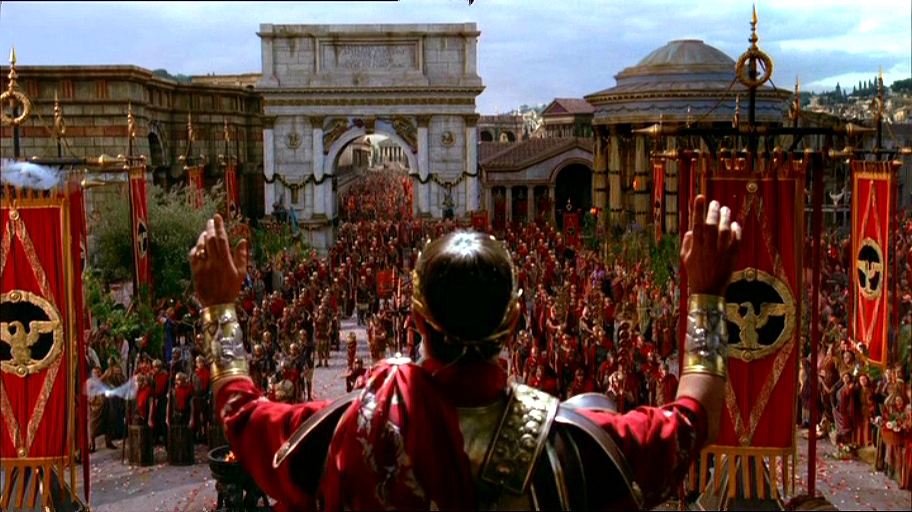[Greek] θριαμβεύω (thriambeuō), [Latin] triumphare: to lead in a triumphant procession, to triumph over, to conquest over, to lead in triumph; Col.2:15, 2Cor.2:14

The Emperor welcomes and addresses the Roman triumphal procession (parade)
Background Information:
Roman triumphal procession (triumphus): This term essentially means to triumph over an enemy. When the victorious Roman legions returned from a successful campaign, it was customary to stage an elaborate parade. The general would lead the way, followed by his soldiers. This procession would include floats with live performers depicting various stages of the campaign. Then followed the spoils of war. At the end of the procession were the prisoners of war, shackled in chains. The procession started in the city and lead to the temple.
New Testament: This term does not occur in the Old Testament. This term, meaning to triumph over or to cause to triumph, occurs twice in the New Testament. Jesus’ way of the cross is paradoxically compared to a triumphant Roman procession. Jesus died, descended into hell, conquered death and the grave, and rose again. Like the chained prisoners, the principalities and powers have been defeated. Paul also presents himself as a captive in his role as apostle and ambassador for Christ. Paul, as a Roman citizen, was well aware of the imagery of Roman victorious procession. The Latin for parade is pompa.
Scripture:
“But thanks be to God, who always leads us in triumph in Christ and manifests through us the odor of the knowledge of Him in every place.” 2Cor. 2:14
Jesus’ way of the Cross leads to victory. This provides the imagery of a conquering hero. The odor represents the use of incense commonly used in a triumphal procession.
“He brought you to life along with Him…despoiling the principalities and the powers, He made a spectacle of them, leading them away in triumph by it (Cross). Col.2:13,15
In the triumphal procession, the prisoners are shackled in chains for all to see. Paul also presents himself as a captive for Christ.
Conclusion:
Triumph, triumphant, pomp
I can only imagine the great spectacle and pageantry of a Roman triumphal procession throughout the city. The people would be cheering seeing the spoils of war and shackled prisoners being paraded before them.
Paul was a Roman citizen who would already understand the power of the Roman Empire. It is significant that Paul provides the imagery of a victorious procession. The way of the Cross of Jesus provides a paradoxical illustration of the procession. Paul presents himself as a prisoner being lead on Jesus’ victory procession. In a sense, the one who follows Jesus becomes a slave to Him.
Interestingly, the Latin pompa means parade. Pomp and circumstance originates from Shakespeare’s Othello. Pomp refers to the spectacle, grandeur, and solemnity of an event. Circumstance refers to the details, duties, and responsibility of an event. So pomp and circumstances can be related to a Roman procession.
